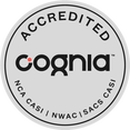SCIENCE
List of Services
-
Integrated Science 1List Item 1
1st Semester: Scientific Research (.5 credits)
This semester-long course is mandatory for all freshman students. The course focuses on developing the essential habits of mind and practice that serve as the foundation of the scientific method. Students learn to utilize the scientific method in a lab environment, which includes planning and conducting experiments, processing, analyzing, and graphing data collected from those experiments, discussing and drawing conclusions based on the collected data, and evaluating the experimental process itself. In addition, they learn to apply statistical analysis to assess the validity and reliability of data. Students also conduct research using popular and academic journals, discerning the currency, accuracy, and usefulness of information to support scientific conclusions. They will demonstrate their learning through quizzes and tests, as well as group work, labs, and various hands-on activities and projects. To succeed in this course, nightly review of material is essential, combined with a curious, analytical, enthusiastic, and diligent attitude every day in class. The skills learned during the semester will carry over to future science as well as other courses.
2nd Semester: Conceptual Physics (.5)
Prerequisite: none
This required semester-long freshman course involves studying the basic concepts of physics. It provides a foundation for understanding the physical world around us and engages students in grasping the fundamental laws and processes that govern how our world works. Students learn through a combination of independent and collaborative hands-on investigations, mathematical concepts, and computer simulations. They will develop skills in experimental procedures and analysis. Students are expected to think critically and apply their knowledge rather than rely on rote memorization. Healthy habits for success in this course include strong time management skills, personal responsibility in group interactions, and proactively seeking help when needed. This course aims to cultivate individual students into critical thinkers who take responsibility for their learning. Additionally, it offers insight into what physics is like in the real world through an independent research project. The course provides students with a solid foundation for future studies in Chemistry and Biology in the 10th grade.
-
Integrated Science 2List Item 2
1st Semester: Biology (.5 credits)
This course provides students with the opportunity to explore how scientists define life and classify living organisms, how populations of organisms grow and change over time, how organisms develop on a cellular level, and how traits and characteristics are inherited. Students learn through laboratory data collection, focused readings, and class discussions. They will enhance their observational and investigative skills as well as their proficiency in experimental design. Scientific literacy and data analysis will be emphasized.
2nd Semester: Chemistry (.5)
This course explores the properties of matter, periodic trends, atomic theory, nomenclature, chemical formulas, mole conversions, chemical composition, reactions, and stoichiometry. Students acquire knowledge and practical skills through lab activities and collaborative problem-solving. Furthermore, the course emphasizes laboratory techniques, experimental design, error analysis, and statistical analysis, with a strong focus on safe laboratory practices. This semester-long course is enriched by the study of Biology.
-
The James River and Environmental ScienceList Item 3
This class provides senior students with the opportunity to understand how river systems function and their connection to the overall environment. The course emphasizes the study of the James River system, focusing particularly on environmental values, perspectives, and history. It delves into current global environmental issues, using both the historical and modern James River as a direct example. Furthermore, the course offers an overview of basic environmental sciences, enabling students to draw connections between these systems. This is a hands-on, experience-based class. We incorporate classroom activities that support various outings to the James River Park System, the environment around campus, Downtown Richmond, and other local James River tributaries.
-
Advanced Biology
This course offers an in-depth study of biological systems and processes, following a curriculum aligned with national standards for introductory college biology. Students will explore key topics such as cellular structure and function, genetics, evolution, ecology, and organismal biology. Emphasis is placed on scientific inquiry, data analysis, and experimental design. Students will engage in laboratory investigations that develop their skills in observation, hypothesis testing, and interpretation of results.
-
Advanced Physics
Physics is a course that models, discusses, and explores the fundamental motions of the universe along with the equations that describe them. This class serves as an introduction to algebra-based physics. Students learn through discussions, demonstrations, hands-on experiments, and simulations. They will interpret the results of their observations, which involves assessing experimental errors and uncertainties. Like all laboratory science courses, students will conduct research through experimentation, developing all aspects of the scientific method.


